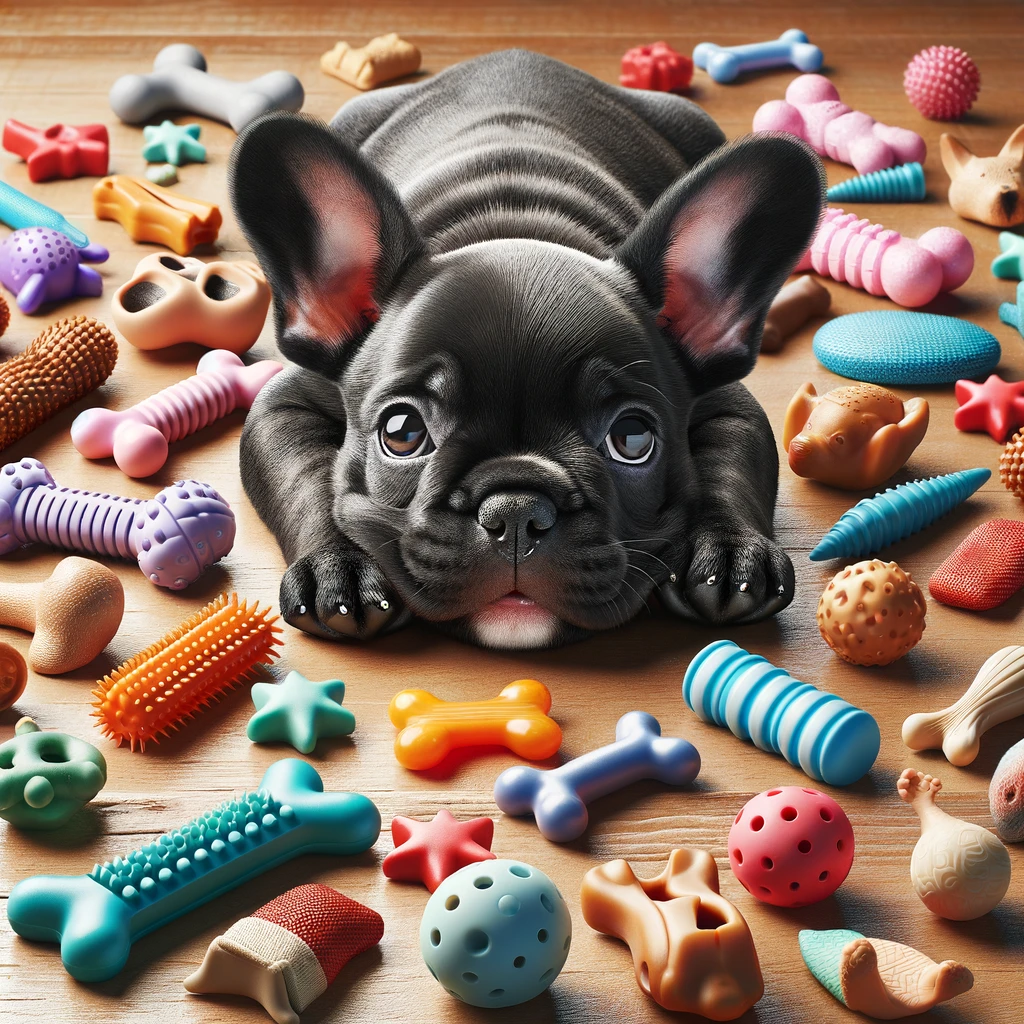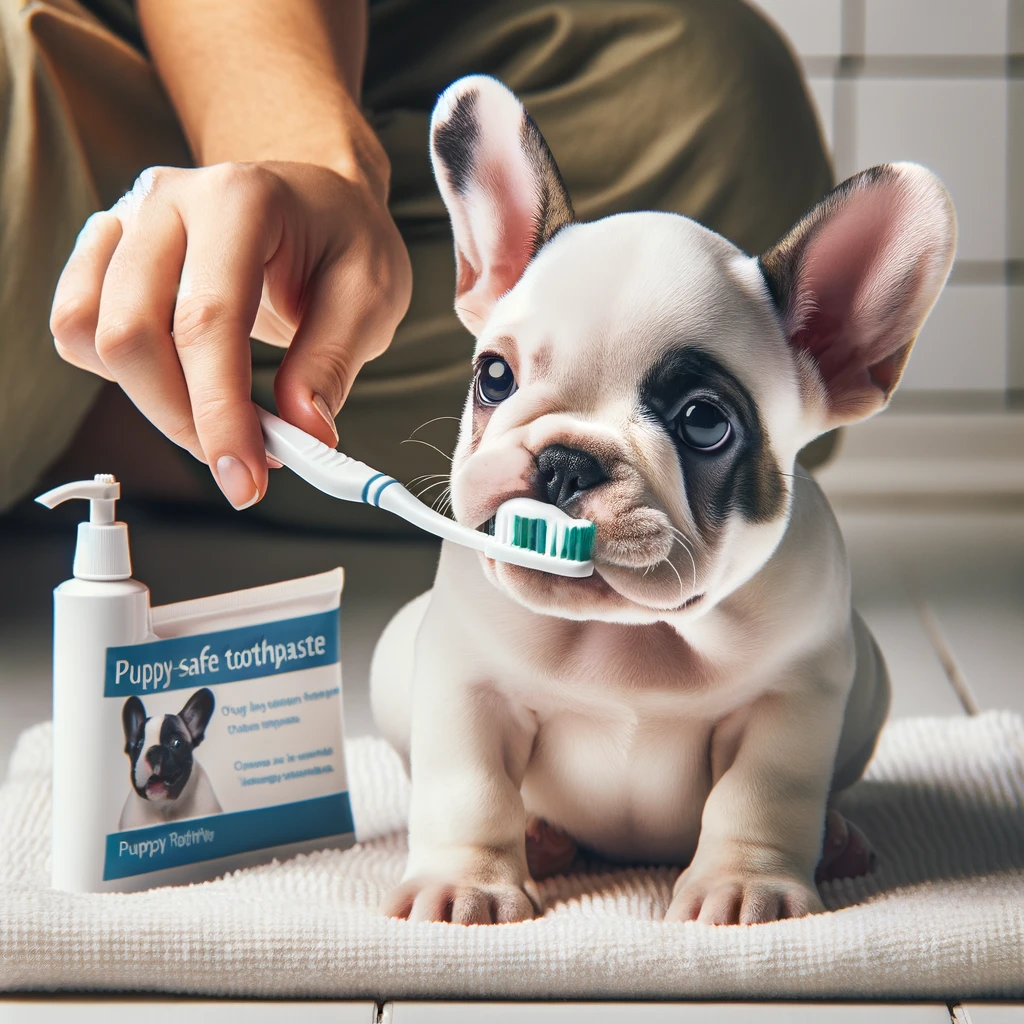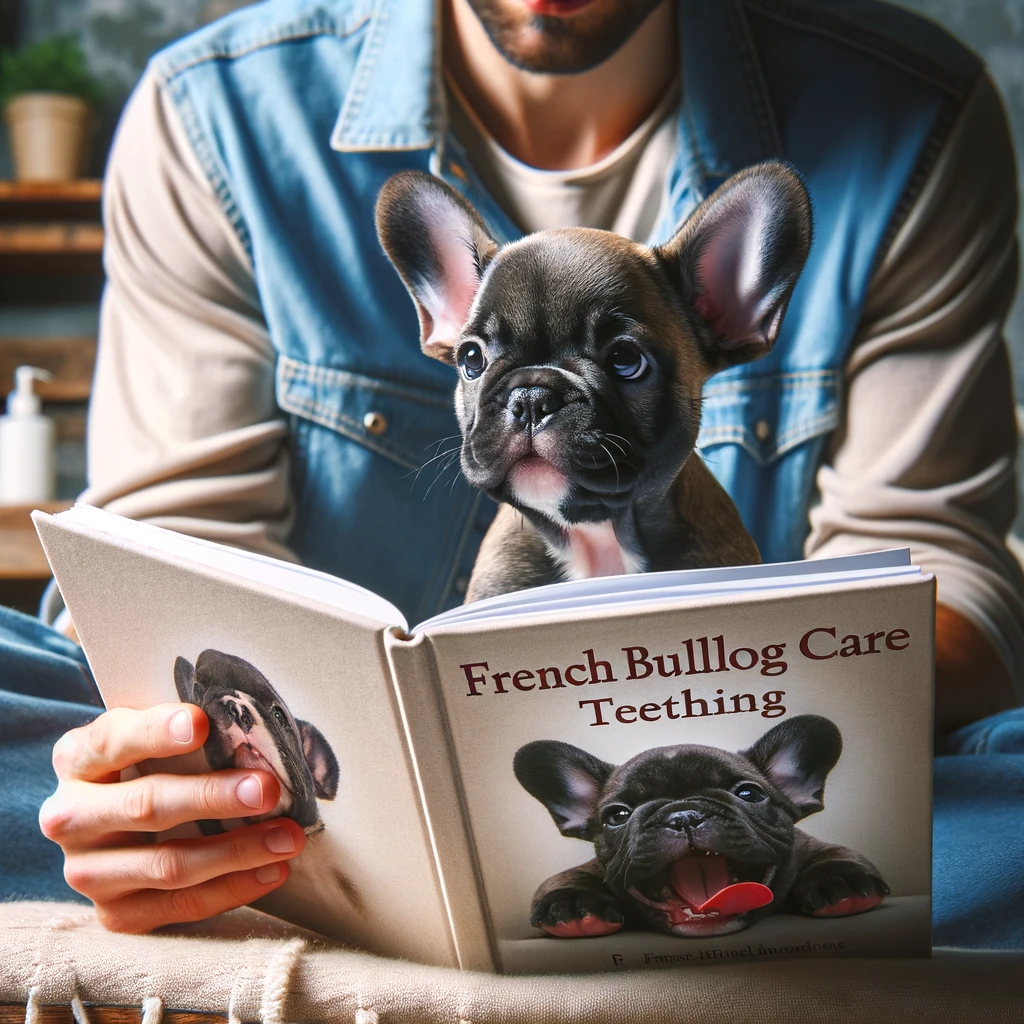Welcome, French Bulldog enthusiasts! If you’re navigating the choppy waters of puppyhood, teething is a milestone you and your Frenchie are likely encountering. It’s an essential phase, but not without its challenges. From nipping to chewing everything in sight, teething can test your patience.
But fear not! I’m here to share 15 Easy Tips to Handle Teething in French Bulldogs 15 to help both you and your pup through this period, ensuring a happy, healthy development phase for your furry friend. 🐶💕

🍼 Tip 1: Understanding Teething
Teething in French Bulldogs typically starts around the 3-4 month mark and can continue until they’re about 7 months old. During this time, you’ll notice your pup chewing more than usual to relieve the discomfort. It’s crucial to recognize this behavior as a natural part of their growth, not mischief.
Creating a soothing environment can significantly help your Frenchie. Remember, patience and understanding are key. They’re not just “being difficult”; they’re uncomfortable and looking to you for relief.
🧊 Tip 2: Frozen Treats
Frozen treats work wonders for a teething Frenchie. They numb the gums and provide a much-needed reprieve from the discomfort. You can freeze chicken broth in ice cube trays or even get specialized puppy teething treats that are safe to freeze.
Remember, moderation is key. Too many frozen treats can upset their little tummies. But used wisely, they’re a fantastic way to soothe sore gums and keep your pup happy.

🐾 Tip 3: Provide Chew Toys
Investing in quality chew toys is non-negotiable during the teething phase. Chew toys not only soothe sore gums but also keep your pup from gnawing on inappropriate items. Look for toys designed specifically for teething puppies, as they’re made to be both safe and effective.
Rotate the toys regularly to keep your Frenchie interested. A bored puppy is more likely to seek out your favorite shoes as chew toys.

🚫 Tip 4: Puppy-Proof Your Home
Puppy-proofing your home is essential to keep both your belongings and your Frenchie safe. Teething puppies will chew on almost anything, from furniture legs to electrical cords. Remove or secure anything that could harm them or that you don’t want destroyed.
This also teaches your pup what’s off-limits, setting boundaries that will last a lifetime.
🤗 Tip 5: Gentle Discipline
When your Frenchie chews on something they shouldn’t, it’s important to correct them gently. A firm “no” and redirecting them to an appropriate chew toy teaches them what’s acceptable. Avoid harsh punishments; they can harm your relationship and your puppy’s confidence.
Consistency and patience are your best tools here. Celebrate their successes to reinforce good behavior.
📚 Tip 6: Engage in Playtime
Playtime is not just fun; it’s a valuable tool for managing teething. Interactive play with chew toys can help focus your pup’s chewing instincts on appropriate items. Plus, it’s a great way to bond and burn off some of that puppy energy!
Make playtime a daily routine, and you’ll likely see a decrease in unwanted chewing behavior.

🩹 Tip 7: Monitor for Discomfort
Keep an eye on your Frenchie for signs of excessive discomfort. While some irritation is normal, severe pain isn’t. Symptoms like reluctance to eat, drooling, or red, swollen gums may indicate a need for a vet visit.
Your vet can offer solutions or treatments to help ease your pup’s discomfort. It’s always better to be safe and seek professional advice.

💤 Tip 8: Ensure Adequate Rest
Teething can be exhausting for puppies. Ensure your Frenchie gets plenty of rest to recover from the fatigue that comes with growing new teeth. Create a comfortable, quiet sleeping area where they can relax undisturbed. A well-rested puppy is a happier, healthier puppy. Plus, sleep is crucial for their development.

🍲 Tip 9: Soften Their Food
If your Frenchie is showing signs of discomfort while eating, consider softening their food. You can add a little warm water to their kibble to make it easier to chew. This can provide relief and ensure they’re still getting the nutrition they need.
Always check with your vet before making significant changes to your puppy’s diet.

🏥 Tip 10: Regular Vet Check-ups
Regular check-ups with your vet are vital during the teething phase. Your vet can monitor your Frenchie’s progress, identify any potential issues early, and provide peace of mind. Plus, it’s an excellent opportunity to discuss any concerns you might have about your pup’s health and behavior.

🛁 Tip 11: Maintain Oral Hygiene
Starting good oral hygiene habits early can prevent problems down the line. Gently brushing your Frenchie’s teeth with a puppy-safe toothpaste can help keep their mouth healthy. It’s also a good way to get them used to regular dental care.

🎉 Tip 12: Celebrate Milestones
Celebrate each milestone in your Frenchie’s teething journey. Whether it’s the first lost tooth or the end of the teething phase, acknowledging these moments can make the challenging times more rewarding. Plus, it’s a great excuse for extra cuddles and treats.
📖 Tip 13: Stay Informed
Staying informed about your Frenchie’s development stages, including teething, can help you better navigate the challenges. Read up on French Bulldog care, join online forums, or talk to other Frenchie owners. The more you know, the better prepared you’ll be.

🚶♀️ Tip 14: Exercise and Mental Stimulation
Adequate exercise and mental stimulation can help distract your Frenchie from the discomfort of teething. Short walks, puzzle toys, and training sessions can keep their mind and body engaged, reducing the urge to chew out of boredom or frustration.
🤝 Tip 15: Seek Support
Remember, you’re not alone. If you’re struggling to manage your Frenchie’s teething, seek support from your vet, a professional trainer, or a breed-specific support group. Sometimes, a little advice can go a long way in easing the journey for both you and your puppy
Conclusion :15 Easy Tips to Handle Teething in French Bulldogs
Teething is a temporary but vital part of your French Bulldog’s growth. With these 15 tips, you can help your puppy through this phase with minimal stress and maximum joy. Remember, every puppy is different, so what works for one may not work for another. Stay patient, stay positive, and enjoy the journey!
Further Reading:
- The American Kennel Club’s Guide to Puppy Teething
- The French Bulldog Club of America on Puppy Care
- Veterinary Oral Health Council for Puppy Dental Care Tips
